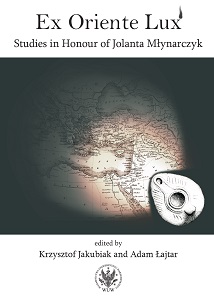THE BYZANTINE AND EARLY-ISLAMIC PERIODS AT DEIR AZIZ: A METHODOLOGICAL QUESTION OF PERIOD IDENTIFICATION BETWEEN SURVEY AND EXCAVATION
THE BYZANTINE AND EARLY-ISLAMIC PERIODS AT DEIR AZIZ: A METHODOLOGICAL QUESTION OF PERIOD IDENTIFICATION BETWEEN SURVEY AND EXCAVATION
Author(s): Chaim Ben David
Subject(s): Archaeology
Published by: Wydawnictwa Uniwersytetu Warszawskiego
Keywords: Deir Aziz; Golan; survey; Early Islamic; Late Roman Red Ware
Summary/Abstract: Settlement history of ancient sites can be determined through both archaeological survey and excavation. However, survey results and excavations results often provide differing data, especially concerning time periods, and particularly when it comes to Early Islamic-period sites. This article examines pottery from the Hellenistic through the Ottoman periods recovered in the ancient settlement of Deir Aziz, east of the Sea of Galilee. The main focus is on the absence at Deir Aziz of Early Islamic-period pottery types in the survey, in contrast to the excavation, where these types constituted a signifi cant quantity of the finds. The article highlights the salient difference between the excavation and the survey at Deir Aziz in the quantity of cooking bowls of form 1E and the ratio of Late Roman Red Ware to local Byzantine period pottery. Additional sites with similar results in the Golan and Galilee are also presented, along with a comparison with the numismatic evidence. The significance of the difference between excavation and survey results at Deir Aziz in understanding the site’s settlement history are discussed, as well as the methodological significance of this study for other sites and regions.
Book: Ex Oriente Lux. Studies in Honour of Jolanta Młynarczyk
- Page Range: 335-344
- Page Count: 10
- Publication Year: 2020
- Language: English, French
- Content File-PDF

